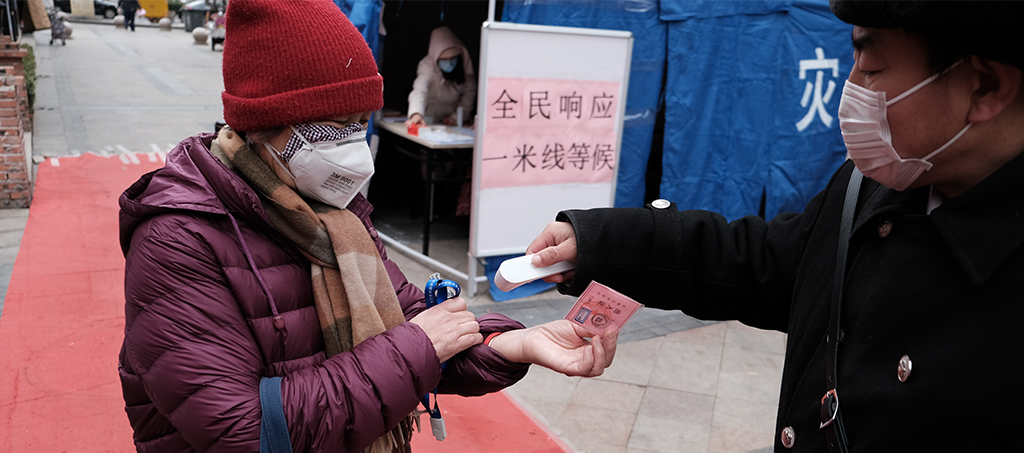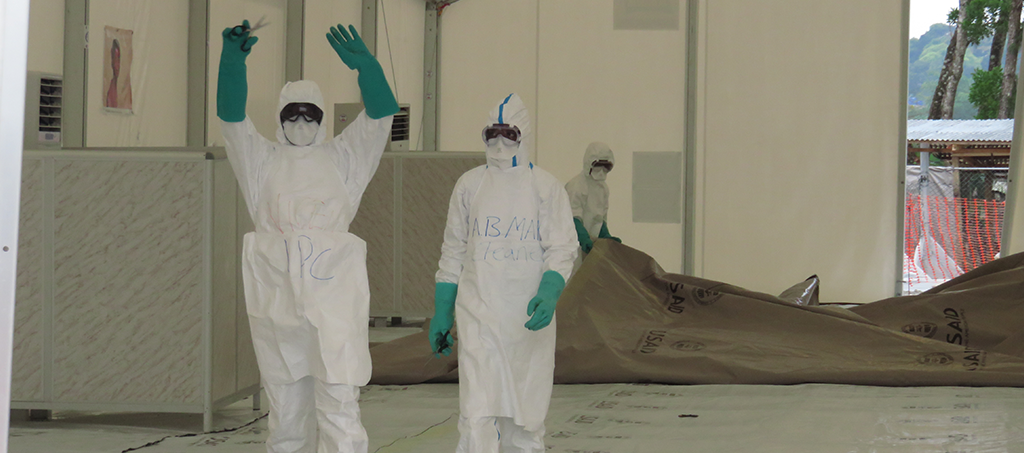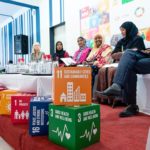COVID-19: Global Health Pandemics and the Threat to International Development

At the World Health Organisation’s (WHO) coronavirus press conference on the 11th February, Dr. Tedros Adhanom Ghebreyesus asserted that global pandemics can be ‘more powerful in creating political, economic and social upheaval than any terrorist attack’. COVID-19 was declared a global pandemic by the WHO on March 11th.
Today, the number of reported COVID-19 infections has surpassed 188,000 and the virus has reached 163 nations. Despite fewer daily cases developing in China, the threat to global health remains rife and experts predict that COVID-19 will continue to spread even more widely. The majority of COVID-19 cases can currently be found in developed nations that have the resources to contain its spread and provide healthcare support to its victims. But it has recently appeared in some of the world’s most vulnerable countries.
Which countries are most vulnerable to COVID-19?
The pandemic poses a much higher threat to low income or developing nations who do not have the same healthcare infrastructure or access to resources to contain the virus.
Vulnerability to COVID-19 is dependent on several factors including busy trade and travel channels, poor health and nutrition in a country, poor living conditions, poor quality of healthcare, resource constraints and low vaccination rates. For example, a report by ODI concluded that exposure to the disease through economic channels will severely threaten nations such as Angola, Congo, Sierra Leone, Lesotho and Zambia. On the other hand, countries that are least resilient and more vulnerable due to their government’s insufficient health spending include Ethiopia, Laos, Pakistan, Ghana and South Sudan.
Developing nations or those affected by violent conflict are already responding to continuous health crises of different natures. This includes famine and malnourishment or other diseases such as measles, cholera and Ebola. The Ebola virus has only just seen its last patient discharged from hospital in the DRC after its second major outbreak in 2018. The African continent’s health systems in particular are often overwhelmed, constantly at risk of new disease outbreaks and previous disease flare ups making them even more fragile in light of the pandemic. While it has been argued that the prevalence of infectious diseases throughout Africa has given the continent a fortunate preparedness, it cannot be denied that COVID-19 holds the potential to cause substantial havoc and risks exacerbating other pre-existing health crises.
Which people are at the greatest risk?
A study from the Chinese Centre for Disease Control Prevention has shown that the elderly and those with preexisting health conditions are at the greatest risk of the virus. However, factors such as malnourishment and famine that affect most fragile and conflict affected countries also weaken people’s immune systems and ability to fight diseases, increasing the possibility of disease-related fatalities. Quoting the WHO, ‘between starvation and death there is nearly always disease’. This heightens the risk posed by the pandemic to the world’s estimated 820 million people that are malnourished.

This figure also doesn’t account for the fact that half the world’s population does not have access to essential health services.
This fact becomes even more concerning in light of recent developments in Italy. In just a matter of weeks COVID-19 has put unprecedented stresses on Italy’s healthcare system, one considered to be amongst the strongest in the world. Italy’s current reported death rates due to COVID-19 are exceeding recovery rates. While Italy has an ageing population, as a developed nation it paints a picture of grave concern for those living in less developed countries without the same access to healthcare who are yet to face this challenge.
The impact of pandemics on international development
Specific to international development and humanitarian efforts, response to a health emergency requires human and financial resources that are unplanned as well as reallocation of resources that were reserved for other development efforts.
Health pandemics have immediate and long-term consequences, with disruption to economic development being felt larger over the long-term. As the Ebola crisis verified, global health emergencies can result in lowered revenues, increased government expenditure (especially in the health sector), slower economic activity, decline in private investment and cuts to labour supply and productivity. Each of these factors works against development progress by disrupting economic growth and activity, locally and globally.
The World Bank calculated that the Ebola outbreak in 2015 reduced Liberian GDP by 3.4%. Sierra Leone’s growth expectations were also reduced from 11.3% in annual GDP growth to 7.0%. For both nations agriculture was hard hit resulting in increased food prices, food hoarding and farming desertion in fear of contracting the disease.
It is too early to accurately predict the impact of COVID-19. But, widespread panic and “aversion behavior” to avoid catching the virus, both voluntary and imposed, have resulted in one of the worst weeks in both US and European stock market histories. But the impact spans much further. Decreased and restricted travel and other broader social restrictions have hit airlines, tourism industries and small and medium businesses across all corners of the globe. Where available capital in developed nations may once have been readily invested into development projects, the economic impact of the pandemic will deem the funds necessary for developed nation’s own economic recovery after the virus subsides.
Estimates of the economic impact of COVID-19 vary significantly. Bloomberg has predicted that it could bring the world economy to a standstill, costing it $2.7 trillion. The OECD however, has suggested that the disease may consequently only half global economic growth.
Despite this, low and middle income countries are at risk of losing $4 billion in goods exports (sub-Saharan African $420 million) just as a result of a 1% fall in Chinese demand and a $0.6 billion in tourism exports (sub-Saharan Africa $16 million). While China is now recovering from the worst of the virus, only time can reveal the impact it will really have on the African continent.
Like Ebola, COVID-19 poses a risk to nearly every sector throughout the economies of developing nations and threatens the emergence of consequences worse than those experienced because of Ebola. Coupled with the panic of the health crisis, economic decline and insecurity, are very likely to provoke heightened risks of violent outbreaks of conflict in fragile countries, which poses a further threat to regional and global security.

CTG consultants responding to the Ebola crisis in Liberia
What must be done?
While many developing nations are more prepared for a pandemic than they have ever been in the past, some remain ill-equipped. As experts have reiterated, resources, intensified surveillance and capacity building should be urgently prioritised in these countries.
The risks of global health emergencies to developing and conflict affected countries must be anticipated and prepared for. This includes understanding the destabilising effects of diseases, and the likelihood of subsequent crises spilling over into surrounding countries. Global health pandemics not only infect people but can also incite economic decline, social unrest and conflict. All of which can also provoke and aggravate each other. This undercuts efforts to contain crises and can have long-lasting implications that reverse years of development progress.
The recent emergence of the disease in developing nations means the real battle against the pandemic is only just beginning. This will be a lengthy fight, and triumph will only be achieved through a persistent, strong and united international effort.


